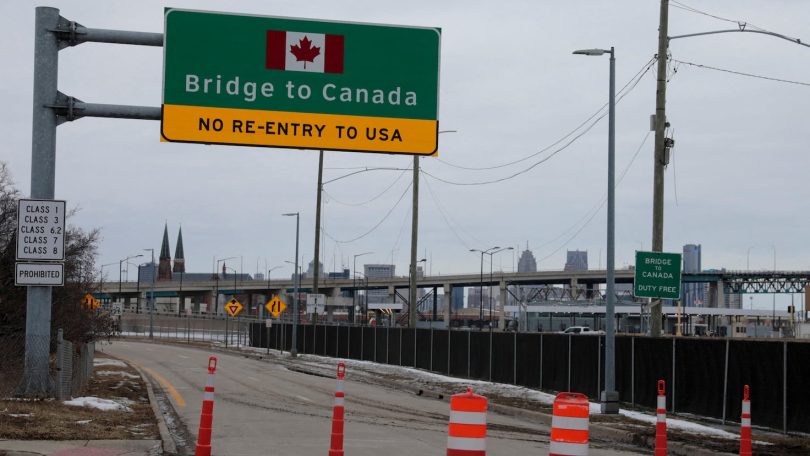Canadians are not typically known for displays of nationalist fervor, but sentiments have shifted since Donald Trump’s return to the White House.
Relations with Canada quickly began to deteriorate. President Trump referred to then–Prime Minister Justin Trudeau as “Governor Trudeau,” and the U.S. imposed tariffs on Canadian imports. However, the scale of these tariffs was soon reduced, as further duties would have violated the U.S.–Mexico–Canada Agreement (USMCA), which had been negotiated during Trump’s first term.
Still, these provocations, along with messaging from the White House suggesting that Canada should become the 51st state, have irritated many Canadians, who feel their sovereignty is under threat.
In response, consumer boycotts of American goods, especially food products, have emerged. Canadians are increasingly encouraging one another to “buy Canadian” whenever possible.
Travel to the US by Canadians drops off
Additionally, travel from Canada to the US has dropped dramatically, a trend that has only worsened as stories from visitors and visa holders detained by immigration police have begun to spread. USA Today reported that in March, visits to the US from Canada fell by a third.
In mid-April, Travel Age West, a travel blog, interviewed McKenzie McMillan, who runs a travel agency in Vancouver, British Columbia, to get his perspective on how these sudden changes are impacting his business.
“For our Canadian clients, travel to the U.S. has pretty much dropped to zero,” said McMillan, adding that in their estimates, their booking data showed a 95 percent decrease in leisure travel to the US since Presidnet Trump took office.
However, while Canadians appear to be staying put or picking another vacation destination, US tourism to Canada has largely remained unchanged. But, how are Canada’s neighbors to the south being treated in the land of Maple Syrup?
Canadians are still looking to welcome tourists from the US
Though on social media, stories of rude encounters are spreading, these appear to be isolated incidents.
McMillian explained that tourists from the US are still welcome in Canada, with much of the Canadian public able to distinguish between the actions of the US government and US citizens. “The anger is directed toward actions the US government has taken against Canada,” explained the travel expert.
Maya Lange, a marketing executive at Destination B.C., expressed similar sentiments and noted that they expect to see a modest increase in tourism from the US in the summer months. Tourism from the US is a critical part of some Canadian economies, and though tensions between the two governments remain high, many Canadians are ready to welcome their neighbors. “We British Columbians would be very sad to hear that Americans aren’t feeling welcome about coming to visit,” expressed Lange.
In Quebec’s Eastern Townships, a marketing campaign has been launched to reassure visitors from the US that they will be welcomed.
The ad features a shy American who is embarrassed to say where he is from, but once he admits it, he is embraced by the hotel receptionist. The ‘Come and Hug it Out’ campaign is aimed at keeping visits up. However, Quebec is far from the only province that understands marketing to the US will be crucial to maintaining high tourism levels. CBC spoke with industry leaders in Ontario, who have been calling on the provincial government to increase spending on marketing, as they are seeing a softening in demand from the US.
Get your game on! Whether you’re into NFL touchdowns, NBA buzzer-beaters, world-class soccer goals, or MLB home runs, our app has it all. Dive into live coverage, expert insights, breaking news, exclusive videos, and more – plus, stay updated on the latest in current affairs and entertainment. Download now for all-access coverage, right at your fingertips – anytime, anywhere.










